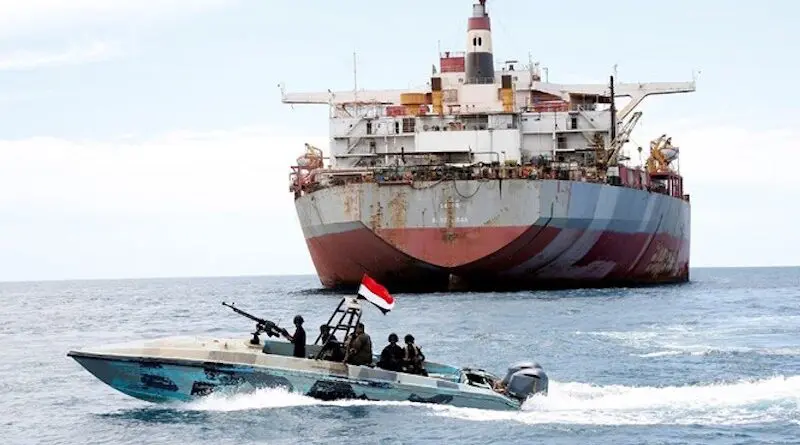
Houthi rebels to halt military operations against most ships in Red Sea
NEW YORK : Houthi rebels have said they will halt their military operations against most ships in the Red Sea, tanker chartering sources and brokers in Singapore, Tokyo and Dubai told S&P Global Commodity Insights on Jan. 20.
Even ships heading for Israeli ports, partially owned by Israeli individuals or entities and managed or operated by them will be exempted from attacks, the tanker sources said, citing a statement from the Houthi fighters.
Tanker chartering sources and brokers in Singapore, Tokyo and Dubai said that despite the statement from Houthi rebels, they would carefully watch the security situation over the next few weeks before taking a call on actually moving cargoes through the Suez Canal.
With the commencement of the ceasefire agreement in Gaza on Jan. 19, Yemeni sanctions on vessels except for those wholly owned by Israeli individuals, or entities and/or sailing under the Israeli flag will be lifted, the Humanitarian Operations Coordination Center (HOCC), which represents the Houthi rebels, said in a statement, a copy of which Commodity Insights saw.
Vessels wholly owned by Israeli individuals or entities and/or sailing under the Israeli flag will remain prohibited from transiting the Red Sea, Bab-el-Mandeb, the Gulf of Aden, the Arabian Sea and the Indian Ocean, the HOCC said.
This implies that even ships heading for Israeli ports, partially owned by Israeli individuals, or entities, and managed or operated by them will also be exempted from attacks, the HOCC statement said.
Attacks on wholly-owned or Israeli-flagged ships will also be stopped once all of the phases of the Israel-Hamas ceasefire agreement have been implemented, these sources said.
Impact of ceasefire on shipping
If the Houthi promise is fully implemented, tankers currently taking the longer route via the Cape of Good Hope would return to their normal course via the Suez Canal, saving time and fuel, and adding to their supply for loading in the Persian Gulf.
“There are too many political and geographical uncertainties that could change the flow of trade,” said a chartering executive with a global commodities trading company.
If US sanctions against Russia become more stringent, it could negate or offset the gains charterers might achieve from the ceasefire in the Persian Gulf, the executive said.
A natural gas chartering executive said it was too early to decide on moving tankers through the Suez Canal as the matter was still under discussion.
Chartering executives in Tokyo and Singapore said the additional war risk premium is expected to decrease, but only after several ships pass through the Bab-al-Mandab Strait without incident for a few weeks.
Charterers will use this as a negotiating tool to reduce the additional war risk premium, a tanker broker in Dubai said.
The Red Sea region continues to be categorized as a high-risk area by the Joint War Committee of Lloyd’s, which provides guidelines to maritime insurers for setting their respective premium values.
A spokesperson for Japan’s NYK Line — one of the world’s largest ship operators — said Jan. 16 that it would consider resuming Red Sea shipping only after confirming the safety and other conditions in the surrounding sea.
LNG ship transit via the Red Sea and through the Suez Canal has been halted for more than a year due to the escalation of attacks on merchant ships.

